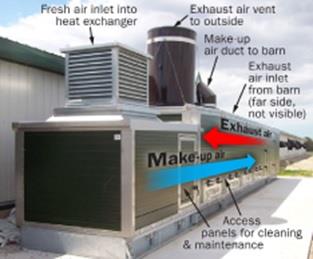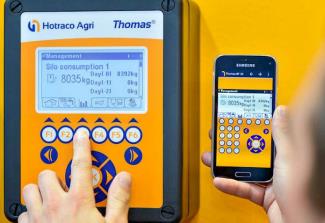As we approach the winter of 2020/2021, winter fuel costs should be reevaluated. The energy information Agency estimates that natural gas will attain $3.38 per million BTU in January 2021 and average price over the coming year will be $1 per million BTU higher than in 2020. Due to the La Nina event underway, the U.S. will experience a cold winter resulting in a draw-down of natural gas from the current record level of 4 trillion cubic feet to a March level approximately six percent lower than the average of the past  five years. Under conditions of cold temperature and high fuel cost, producers tend to reduce ventilation rates to maintain house temperature. This has deleterious effects on litter moisture, atmospheric ammonia and suspended dust, all of which can exacerbate in intestinal and respiratory pathogens.
five years. Under conditions of cold temperature and high fuel cost, producers tend to reduce ventilation rates to maintain house temperature. This has deleterious effects on litter moisture, atmospheric ammonia and suspended dust, all of which can exacerbate in intestinal and respiratory pathogens.
Producers in Europe faced with regulations and public opinion that mandates sustainability install roof-mounted solar panels to generate electricity in addition to a growing adoption of heat exchangers. These units allow heat within the house to be transferred to incoming cold air in a process of passive transfer. This allows acceptable minimal ventilation rates without inducing cold stress in a flock. The benefits of heat exchangers include barn litter with a lower moisture content that is easier to handle in addition to suppressing proliferation of house flies. Heat exchangers reduce fuel consumption especially in brooding barns. The higher rate of ventilation using a heat exchanger affectively removes carbon monoxide, carbon dioxide and moisture improving environmental conditions in barns.
 Hotraco Agr. has developed control systems designed to integrate the operation of ventilation systems including heat exchangers as well as egg flow, environmental monitoring all contributing to flock health, sustainability and profitability. When heat exchangers are adopted in North America, Hotraca will be ready to facilitate installation and operation of systems. Additional information is available by clicking on to the Hotraco logo on the right side of the Welcome page.
Hotraco Agr. has developed control systems designed to integrate the operation of ventilation systems including heat exchangers as well as egg flow, environmental monitoring all contributing to flock health, sustainability and profitability. When heat exchangers are adopted in North America, Hotraca will be ready to facilitate installation and operation of systems. Additional information is available by clicking on to the Hotraco logo on the right side of the Welcome page.